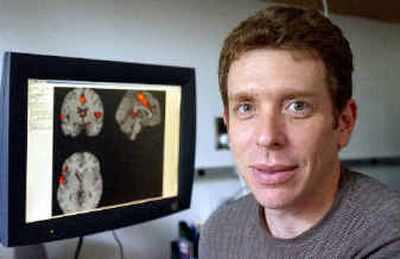Easy money comes with a price, study shows

ATLANTA – It’s nicer when you actually earn it.
Lottery winners, trust-fund babies and others who get their money without working for it do not get as much satisfaction from their cash as those who earn it, a study of the pleasure center in people’s brains suggests.
Emory University researchers measured brain activity in the striatum – the part of the brain associated with rewards and pleasure – in two groups of volunteers. One group had to work to receive money while playing a computer game; the other group was rewarded without having to earn it.
The brains of those who had to work for their money were more stimulated.
“When you have to do things for your reward, it’s clearly more important to the brain,” said Greg Berns, professor of psychiatry. “The subjects were more aroused when they had to do something to get the money relative to when they passively received the money.”
Berns said that other studies have shown “there’s substantial evidence that people who win the lottery are not happier a year after they win the lottery. It’s also fairly clear from the psychological literature that people get a great deal of satisfaction out of the work they do.”
In the Emory study, published Thursday in the journal Neuron, volunteers played a computer game in which they had to push a button every time a triangle appeared. The 16 volunteers played while their brains were scanned by a magnetic resonance imaging machine, or MRI.
The researchers found that some reward centers of the brain were activated whenever a volunteer received money. However, the striatum was activated only when volunteers worked for their reward.
“I don’t think it ever evolved to sit back and sit on the couch and have things fall in our laps,” Berns said.